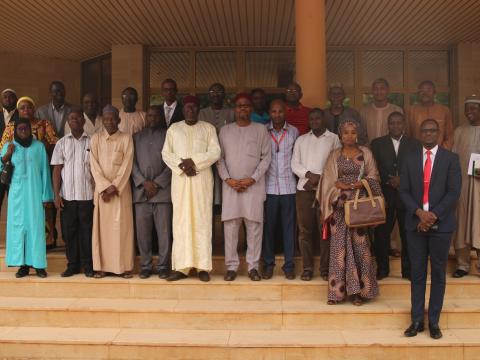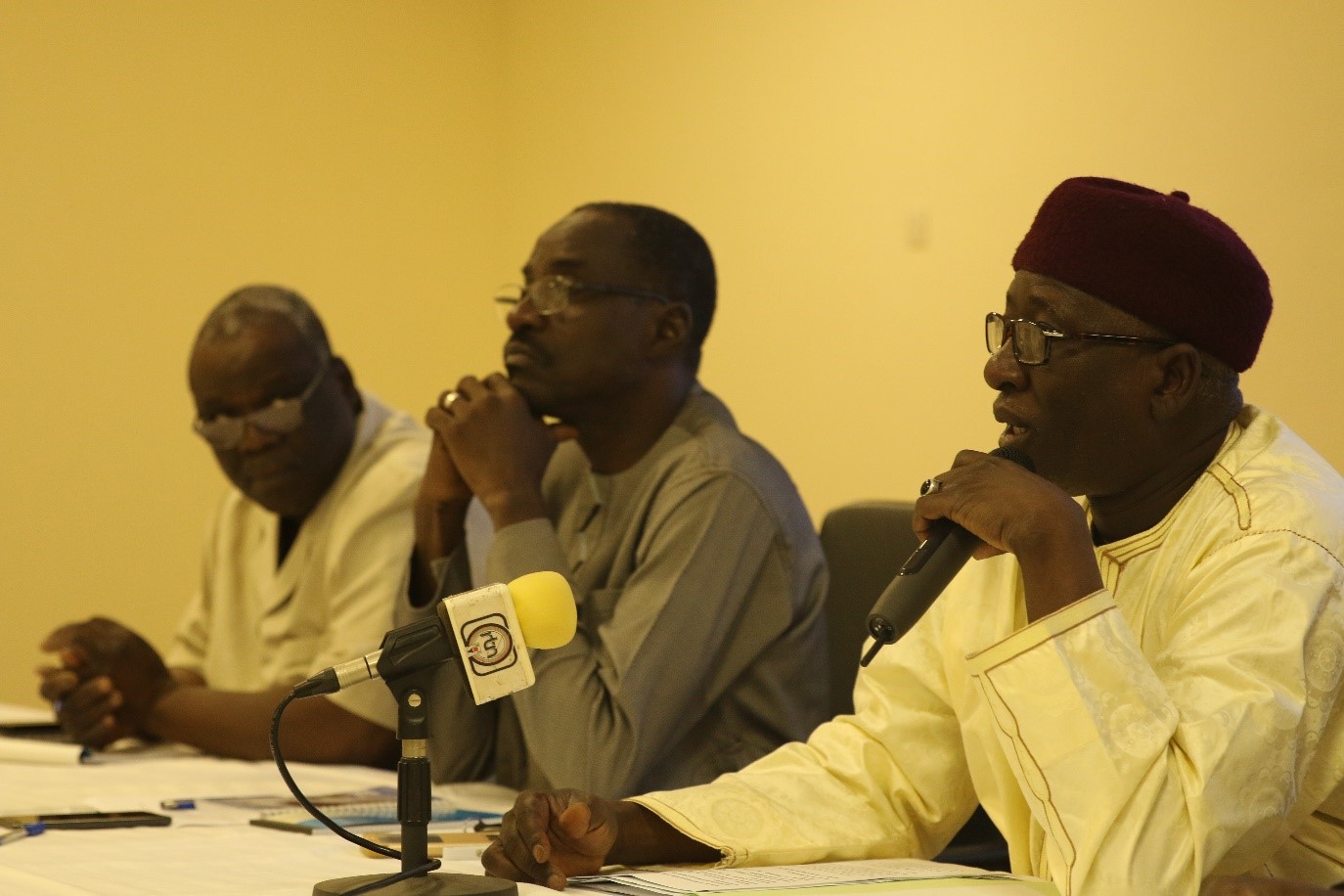The Ministry of Hydraulics conducts the process of restitution of the results of the trace metal study in rural development water points

World Vision Niger provided technical input to a groundbreaking event, hosted by the Government of Niger, which will lead to action to improve the quality of drinking water in the country.
The National Workshop on Trace Metals was held Monday, July 22, 2019 at the Grand Hotel Niamey. The workshop considered the results of extensive studies of water quality carried out by the University of North Carolina in a project led by World Vision, including an emphasis on trace metals in drinking water installations. The Niger Ministry of Hydraulics intends to lead all specialists in the Water, Sanitation and Hygiene sector in adopting a common roadmap to improving water quality in the country.
Mr. Sagane Thiaw, World Vision’s Director of Operations, thanked the Government of Niger through the Ministry of Hydraulics for agreeing to lead the process to organize the meeting. He also spoke about the process that led to the study.
The opening speech was delivered by Mr. Moussa Mamane, Deputy Secretary General of the Ministry of Hydraulics. He emphasized the importance of the consumption of quality water: "We usually say that water is life. However, it is imperative that the quality be checked before consumption for the well-being of the population. And, that is our duty to all.”

The results of the trace metals study were reported by Mr. Samuel Diarra, Technical Director for Water, Sanitation and Hygiene in World Vision. During his presentation, he explained the various ways in which traces of metals, including lead, could get into water supplies. He said that saving communities from relying on unsafe and contaminated water sources is proven to save children’s lives and promote good health, but that it is also important to consider the potential health effects of trace metal contamination. Lead, in particular, is known to hold back the development of children.
During the workshop, a roadmap was produced to tackle the problem. Nine priority actions were identified as a follow-up to this study. The deadline for implementing these actions is 2021.